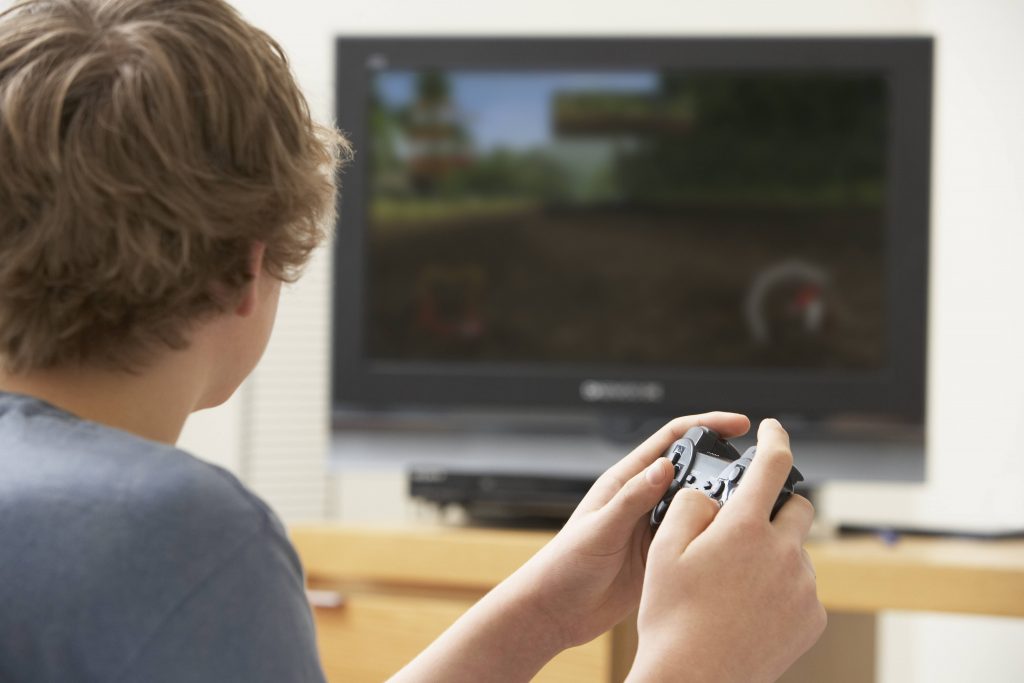-
Featured News
Mayo Clinic Q and A: Gaming disorder — what is it and when should you be concerned about your child?
 DEAR MAYO CLINIC: What is gaming disorder? How can you tell if a child might have this condition, rather than just being a kid who really likes playing video games?
DEAR MAYO CLINIC: What is gaming disorder? How can you tell if a child might have this condition, rather than just being a kid who really likes playing video games?
ANSWER: Gaming disorder goes beyond having a passion for video games. It's a pattern of addictive behavior in which playing digital or video games is the highest priority in a person's life. Gaming disorder interferes with an individual's daily routines, and it has an effect on mental and physical well-being.
The World Health Organization, or WHO, recently recognized gaming disorder as a mental health condition. And although the diagnostic manual for the American Psychiatric Association does not consider it an official disorder, it recommends that gaming disorder be studied further. Its symptoms, as identified by WHO, include impaired control over gaming; gaming taking precedence over other interests and activities to the extent that it results in impaired function or distress; and gaming behavior continuing despite negative consequences.
There are several red flags to look for if you're concerned your child may have gaming disorder. Has your child withdrawn from sports, clubs or other activities that don't involve video games? Does most of your child's interaction with other people involve online gaming communities? Has your child's school performance declined as his or her interest in gaming has grown? Does gaming occupy most of your child's free time? Do video games disrupt your child's sleep patterns? If you answered "yes" to any of these questions, your child's gaming behavior could be developing into gaming disorder.
Also, pay attention to your child's emotional response if he or she cannot play video games. An individual with gaming disorder often will become extremely angry, anxious or distressed at the thought of being away from video games for more than a brief period of time. Because this is an addictive disorder, it's difficult for people with gaming disorder to cut down on the amount of time they spend playing video games. When confronted about the time they spend gaming, people in this situation usually won't admit that they could cut back. Many insist their behavior is normal.
It's important to note, too, that gaming disorder can significantly affect physical health. Due to the sedentary nature of most video games, people with gaming disorder tend to engage in little physical activity, putting them at risk for elevated body mass index. That can lead to obesity, high blood pressure, liver problems and Type 2 diabetes. People who have this disorder typically don't take steps to address health concerns.
Note the recommendations of the American Academy of Pediatrics: Children younger than 18 to 24 months should not use media, except for video chatting. For children ages 2 to 5, limit screen time to one hour a day of high-quality programming. As your child grows, a one-size-fits-all approach doesn't work as well. You'll need to decide how much media to let your child use each day and what types are appropriate.
If you're worried about your child's gaming, make an appointment to see a health care provider. He or she can help evaluate the situation, provide guidance and, if necessary, make a referral to a mental health professional.
If you don't think your child's behavior rises to the level of gaming disorder, but you believe he or she would benefit from a decrease in screen time, try these tips. Create tech-free times in your home, such as during mealtimes, or specific family activities or outings. Make sure everyone — adults included — leave all screens off during those times. Keep screens out of bedrooms. Set and enforce daily or weekly screen time limits and curfews, such as no exposure to devices or screens one hour before bedtime. Charge devices outside of bedrooms during the night.
Have a conversation as a family about managing screen time in your home that considers your family's values and priorities. Discuss why it's important to have limits, and talk about the benefit of activities that don't involve electronic devices and video games, such as reading, playing sports and having face-to-face conversations. Remind your kids that learning positive ways to engage and disengage with screens and video games can help protect their overall safety and health. — Dr. Angela Mattke, Pediatric and Adolescent Medicine, Mayo Clinic, Rochester, Minnesota







